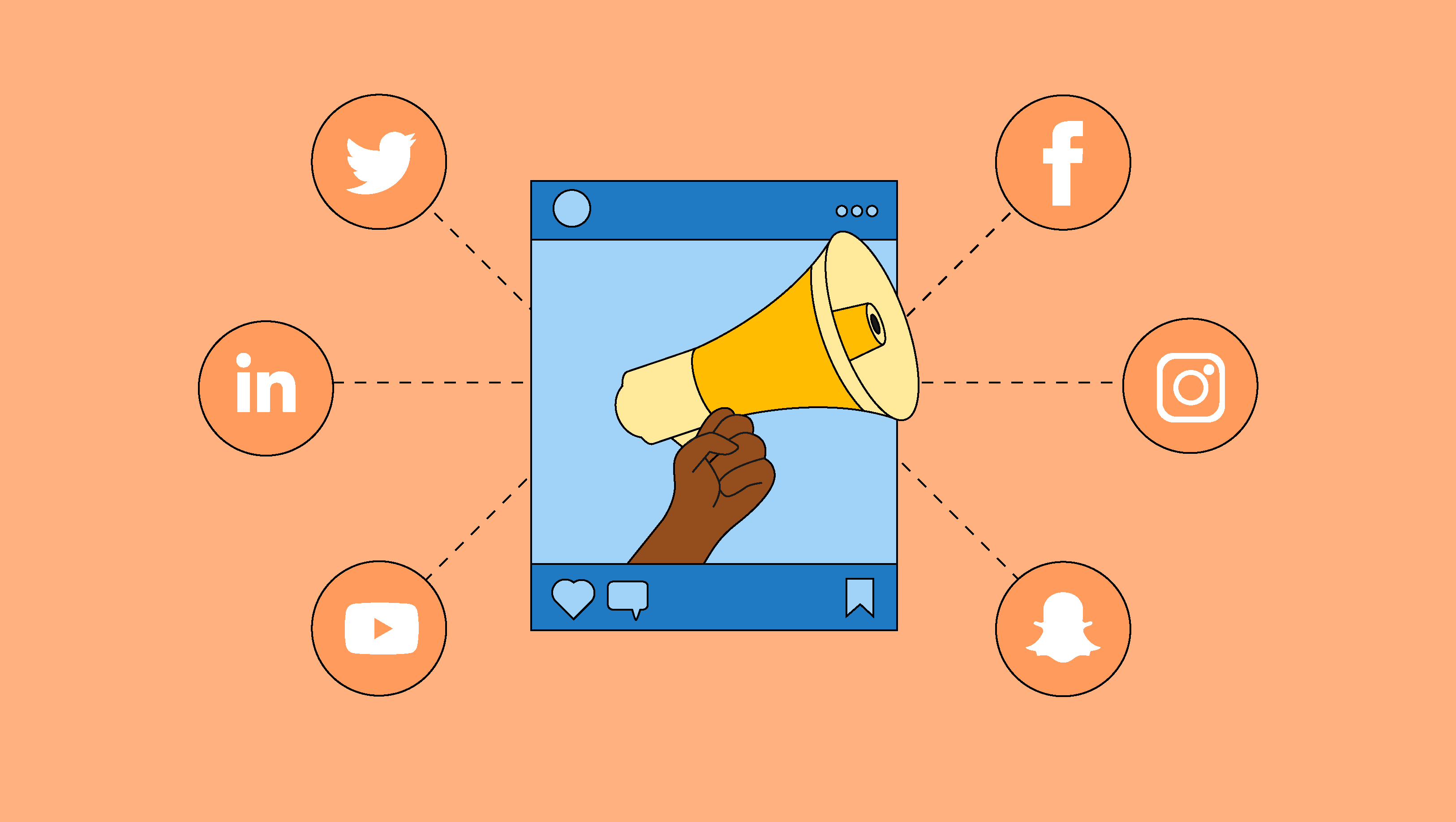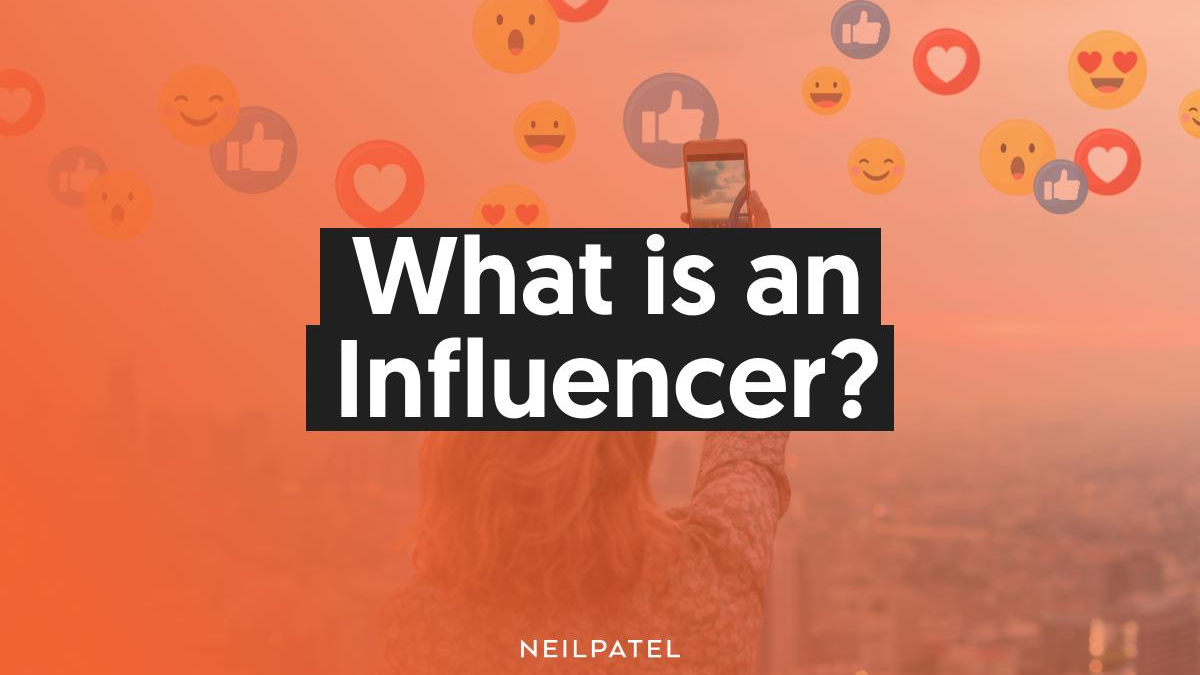In the age of social media dominance, a new breed of online personalities has emerged, wielding immense influence over millions of followers worldwide. These individuals, commonly referred to as "influencers" have revolutionized the way brands connect with their target audience and transformed the dynamics of online engagement. This article explores the phenomenon of influencers, their rise to prominence and the profound impact they have had on the digital landscape. Influencers have emerged as the new celebrities and key drivers of consumer behavior. With their ability to captivate and engage large audiences, influencers hold tremendous power to shape trends, influence purchasing decisions and redefine the digital landscape.The impact they have on brands and consumers and challenges they face in maintaining authenticity amidst a rapidly evolving industry.
The Rise of Social Media Platforms:
The advent of social media platforms like Instagram, YouTube, and Tiktok provided fertile ground for the birth of influencer culture. With the rise of these platforms, anyone with a smartphone and a creative idea could potentially become an influencer, transcending traditional barriers to fame and success. Influencers differ from traditional celebrities as they primarily gain recognition through their digital presence, often based on specific niches such as beauty, fashion, fitness, travel, or gaming.
The Rise of Influencers:
The influencers have revolutionized the way we consume content and interact with brands. With platforms like Instagram, Youtube and Twitter, individuals with a passion for fashion, beauty and fitness, travel and various other niches have build personal brands and amassed dedicated followings. Unlike traditional celebrities, influencers often have a more relatable and authentic connection with their audience, which enables them to establish trust and loyalty.
The Influence of Influencers:
The sway of influencers extend beyond the digital realm, as they possess the ability to impact consumer behavior and shape popular culture. Their endorsements of products and services can lead to skyrocketing sales and brand exposure. Collaborations between influencers and brands have become increasingly common, with influencer marketing evolving into a multi billion dollar industry. Marketers recognize the value of leveraging an influencer's reach and credibility to promote their offerings.
Moreover, influencers have the power to champion social causes and effect positive change. They often use their platforms to raise awareness about issues such as sustainability, mental health and social justice, mobilizing their followers and initiating impactful conversations.
Authenticity and Trust:
One of the key factors contributing to an influencer's success is authenticity. Audiences are drawn to influencers who showcase geniune experiences, opinions and emotions. However, as the influencer industry has grown, so too have concerns about authenticity. Some influencers face criticism for promoting products solely for financial gain, eroding the trust they have built with their followers.
To combat this, influencers must strike a delicate balance betwen sponsored content and organic engagement. Maintaining transparency with their audience, clearly disclosing paid partnerships and promoting products they geniunely believe in are crucial for preserving authenticity and trust.
Evolving Landscape and Challenges:
The influencer landscape is continually evolving, presenting new challenges for both influencers and brands. As social media platforms change their algorithms and policies, influencers must adapt to ensure maximum visibility and engagement.Additionally, the emergence of deep fake technology poses risks to the authenticity of influencer content, necessitating increased vigilance and verification.
Futhermore, the influencer industry becoming more regulated, with guidelines and laws implemented to address concerns such as disclosure practices, data protection and brand safety. Influencers need to stay informed and compliant with these regulations to maintain their credibility and avoid legal repercussions.
Power of Influence:
One of the key aspects that set influencers apart is their ability to establish authentic connections with their followers. Unlike traditional advertising, influencer marketing relies on personal recommendations and genuine experiences, resonating with audiences seeking relatable content. Influencers collaborate with brands through sponsored content, product placements, and affiliate marketing, acting as intermediaries who bridge the gap between companies and their target audience. Brands recognize the potential of influencers to sway consumer behavior and are increasingly investing in influencer partnerships to boost brand awareness, reach new audiences, and drive sales.

Changing Face of Marketing:
While influencers have reshaped the digital landscape, they are not immune to challenges and controversies. With their increasing prominence, concerns have arisen regarding issues like authenticity, transparency, and ethics. Questions have been raised about the veracity of sponsored content, as influencers are obligated to disclose their partnerships. Additionally, issues such as influencer fraud, fake followers, and mental health concerns have also come to the forefront, demanding a closer examination of the influencer industry.
Significant Role:
As influencers continue to play a significant role in shaping consumer behavior, the future of influencer marketing appears promising. However, the landscape is likely to evolve further as platforms, algorithms, and consumer preferences change. Brands will need to adapt their strategies to align with the shifting dynamics of the digital sphere, while influencers will need to find innovative ways to captivate and retain their audiences amidst growing competition.
Influencers have undeniably transformed the digital landscape, becoming a powerful force in the marketing industry. Their ability to connect with audiences on a personal level has disrupted traditional advertising methods and revolutionized brand-consumer relationships. However, as the industry matures, stakeholders must address challenges and controversies to maintain the trust and integrity of influencer marketing. As we look ahead, it is evident that influencers will continue to shape the way we engage with content and brands, influencing trends, purchase decisions, and the overall online experience. Influencers have transformed the digital landscape. With their ability to create authentic connections and engage with audiences, they have become powerful marketing assets for brands.




You must be logged in to post a comment.